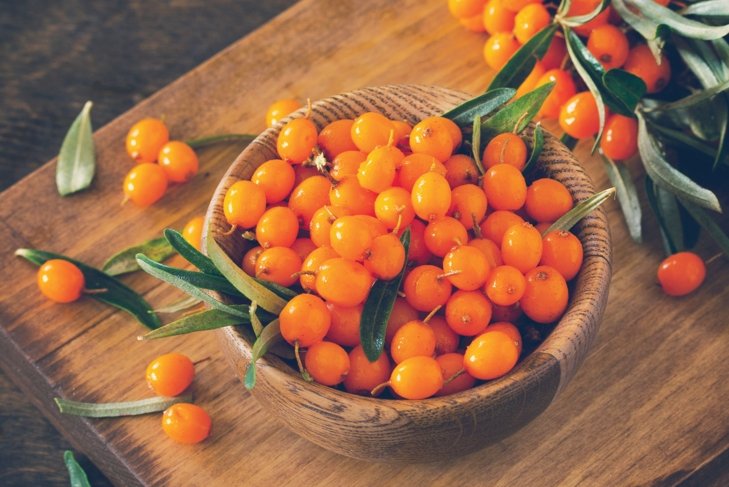
Feeding our skin from the inside is easy on a vegan diet. But you might be surprised to learn that many of the beauty products we use can contain animal ingredients. Check out these skin-loving plant-based foods as well as the ingredients to beware of that may be lurking in your beauty products.
If you’re easing into a vegan lifestyle, you’ve probably already sampled, and embraced, the creativity and abundance—not to mention the incredible health-enhancing properties—of a vegan diet. But how do you take care of your skin and stay true to your vegan commitment?
Plant-based skin-loving foods
If you’re eating a plant-based diet, you’re already doing something right. At least one non-vegan food group—dairy—can be a bad choice for healthy skin. Studies have linked dairy to acne, possibly because of certain hormones in milk. And saying goodbye to skim milk, in particular, may be a major win for your skin.
Avocados
Avocados are high in beneficial fats for supple skin. They also contain vitamins E (protects skin from oxidative damage) and C (essential for creating collagen—the main structural protein for strong, healthy skin).
Walnuts
Foods rich in omega-3 fatty acids, like walnuts and flaxseeds, help skin stay moisturized and fight inflammation. Walnuts also contain zinc—important in skin’s role as a barrier and for wound healing and combatting bacteria.
Sweet potatoes
Sweet potatoes are an excellent source of beta carotene, which acts as a natural sun block and may protect skin from sun damage. Fill your plate with other beta carotene stars like carrots, spinach, and apricots.
Red or yellow peppers
More beta carotene stars, red or yellow peppers are also full to the brim with vitamin C—an amazing 317 percent of our recommended daily value for one cup of peppers.
Broccoli
Eat your broccoli! It’s a powerhouse of vitamins, minerals, and carotenoids that are important for skin health, but sulphoraphane, which may help prevent skin cancer and protect your skin from sunburn, is its secret skin-loving ingredient.
Tomatoes
As well as lots of vitamin C, tomatoes pack all the major carotenoids, including lycopene, which helps protect skin against sun damage and may prevent wrinkling.
Skin-loving supplements
Want to get even more gorgeous skin from within? Talk to your health care practitioner about adding a daily dose of these supplements to your regular routine.
Sea buckthorn oil
Sea buckthorn oil—which is high in omega-7—can be taken orally or used topically. Sea buckthorn is also rich in vitamin E, lycopene, and beta carotene which helps with skin hydration, elasticity, and regeneration. It may also help protect skin from UV rays.
Astaxanthin
A big-time antioxidant, astaxanthin may help improve wrinkles, age spots, skin moisture, and skin texture. A recent study of 35- to 60-year-old women showed suppression in wrinkles and skin moisture deterioration along with improvement in skin elasticity after 16 weeks of astaxanthin supplementation.
Vitamins C and D
Research suggests adequate levels of vitamin D may play an important role in protecting us from many skin conditions like psoriasis, acne, and rosacea. Vitamin C supplements can help with collagen formation and keep skin bright and vibrant by reducing wrinkles and improving elasticity.
Plant-based collagen builders
No meat? No problem. Plant-based collagen builders have you covered in the collagen department. They contain ingredients like amino acids, silica, biotin, and vitamin C, which can help keep your skin looking young.
Pop probiotics for healthy skin
While you’re busy loading up your plate with sweet potatoes and walnuts, consider adding probiotics to your daily routine. Probiotics have been extensively studied for their help in treating acne as well as for their role in protecting against the effects of skin damage from ultraviolet light, including wrinkles and skin elasticity.
Resources for vegan products
Leaping Bunny Program
For online shopping, resources, news, and shopping guides. leapingbunny.org
People for the Ethical Treatment of Animals (PETA)
For product guides, blogs, petitions, and more. peta.org
Environmental Working Group (EWG) Skin Deep Database
Remember, not every natural product is vegan, and not every vegan product is natural or nontoxic. This site allows users to search for products and companies, and determine how healthy or toxic they are. ewg.org/skindeep
What about what we put on our skin?
Beware of non-vegan ingredients in beauty products. Eating plant-based foods is one thing, but making sure we embrace the vegan lifestyle involves being aware of what’s in the products we consume—and that means beauty products too. Here’s a list of ingredients to be wary of when you shop.
Allantoin
This skin-conditioning agent can be derived from either plants or animals, so make sure to ask, or read the labels.
Beeswax and honey
Derived from bees, of course, beeswax and honey are not vegan. Alternatives to beeswax can include carnauba wax and candelilla wax, while alternatives to honey include vegetable colours and oils.
Carmine
This pigment, derived from red beetles, is widely used in natural lip products. Alternatives include beet juice.
Emu oil
Alternatives to this non-vegan moisturizing ingredient include vegetable and plant oils.
Lanolin
Another moisturizing ingredient, lanolin is sourced from sheep’s wool. And many natural vitamin D supplements are sourced from lanolin, although vegan alternatives are available.
Glycerin
This common ingredient can either be sourced from animal fat or vegetables. When in doubt, ask the manufacturer.
Squalene
Although originally derived from shark liver, many companies now source this moisturizing squalene from olive oil. Read the label to be sure.
For a comprehensive list, visit peta.org/living/beauty/animal-ingredients-list.
















